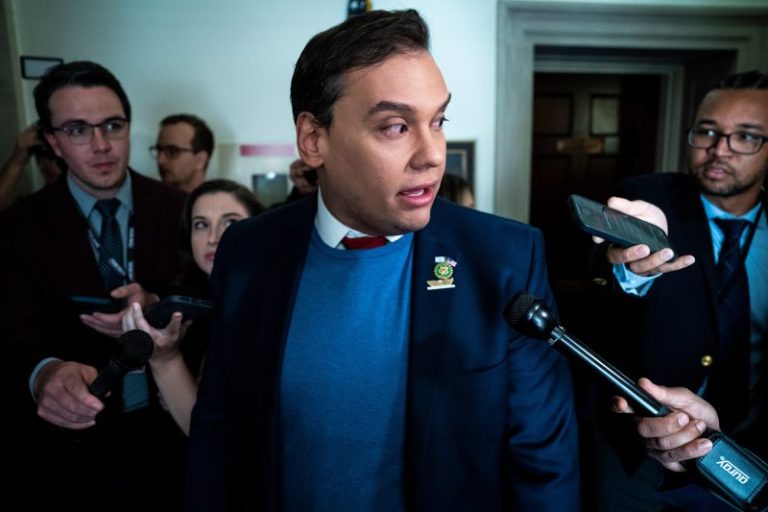Soon after indictments against Sen. Bob Menendez (D-N.J.) and Rep. George Santos (R-N.Y.) were made public, members of their own parties called for the lawmakers to resign. In Menendez’s case, the quick accumulation of Democrats calling for him to step down spurred informal whip counts, tallies of who still hadn’t taken the step. In Santos’s case, the new set of allegations on Tuesday (after an indictment earlier this year) spurred some in his party to push for a vote to expel him.
To an outsider, the idea that these legislators would stay in office might seem baffling. They are innocent until proven guilty, yes, but these are not vague indictments targeting reputable actors. Menendez and Santos have each been under a cloud of suspicion for some time, and, in each case, the allegations presented are detailed and more than credible. So why would they tarnish their states or their chambers of Congress by holding fast?
There is more than one answer to that question, certainly, and the reasons may vary for each man. But there is one answer that seems to be underrecognized: Their positions are bargaining chips as their prosecutions move forward, and throwing away such a bargaining chip in light of the seriousness of the charges would understandably seem, in their eyes, quite foolhardy.
Jennifer Rodgers, a former federal prosecutor and a lecturer at Columbia Law School, spoke to The Washington Post and pointed to the use of elected positions — and resignations from same — often being potential points of discussion in such prosecutions.
“It’s explicitly in the Justice Manual that prosecutors can negotiate with that,” Rodgers explained, referring to a collection of rules provided to federal prosecutors. “So if you were the defendant, why would you ever resign and then lose the ability to try to say, ‘Well, hey, listen, I’m willing to resign. Let’s talk about what kind of deal you can offer me, given that that’s the case? ’ ”
It’s important to note that there is a difference between Santos and Menendez holding their positions to offer them as a concession to prosecutors and prosecutors asking for them to resign. The manual to which Rodgers referred makes clear that, for those who hold federal offices, prosecutors can’t demand a resignation as part of a negotiation. After all, Rodgers pointed out, you don’t want the executive or judicial branches — as could be the case with a judge imposing a sentence — forcing out members of the legislative branch, upending the constitutional separation of powers.
“You can’t make them resign. It’s not that you’re forcing them to resign,” Rodgers explained. “It’s that, as part of the voluntary negotiations, you can offer that if they resign, you will propose this deal and so on. So it has to be voluntary as part of the deal, not forced, involuntary.”
Prosecutors could tell Santos (for example) that they’d agree to more generous settlement terms if he left office. But they or the sentencing judge couldn’t insist that he step down.
That’s a note of caution that doesn’t apply for state or local officials. “Where the office involved is not one within the Legislative or Judicial Branches of the federal government,” the Justice Manual reads, “such negotiated terms may also be enforced involuntarily against the will of the defendant by a sentencing judge pursuant to the Federal Probation Act.”
Similarly, Rodgers said resignations are more appropriate for situations like Menendez’s or Santos’s, in which the alleged criminality centers on obtaining or holding political power.
“When the core conduct that’s being charged is, in fact, having to do with abuse of their office — or in Santos’s case, abuse of the campaign finance laws and so on, as he was a candidate for office,” she explained, “then it is fully appropriate to kind of make that part of the deal.”
Again, these aren’t the only reasons Menendez and Santos would want to retain their positions. They may believe, with some justification, that resigning would give an appearance of guilt, and retaining their positions one of innocence. But from a purely practical standpoint, their positions remain chips that can be used in negotiations with prosecutors.
Just in case they, for some reason, lose confidence that a jury of their peers would find them not guilty.

